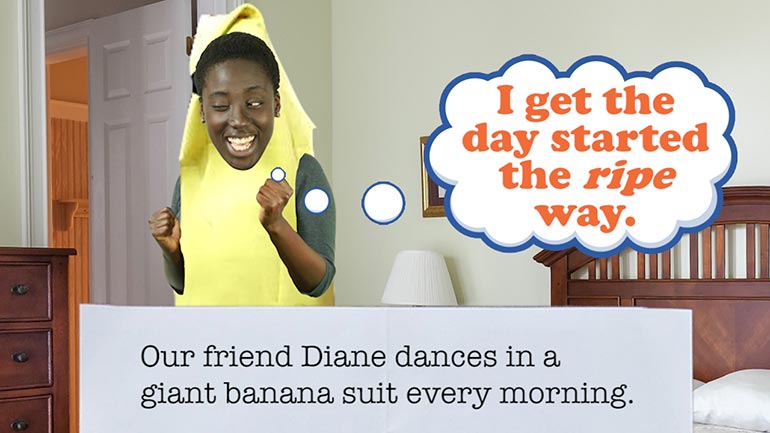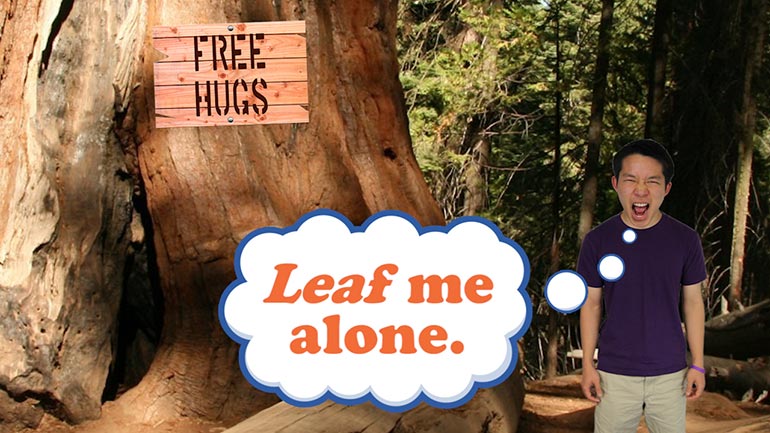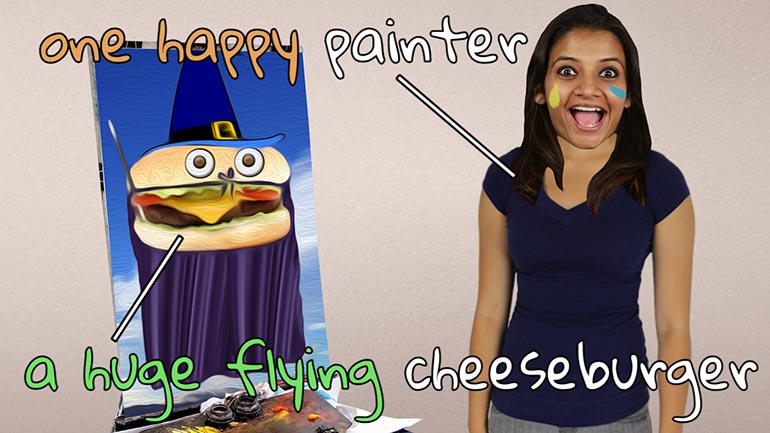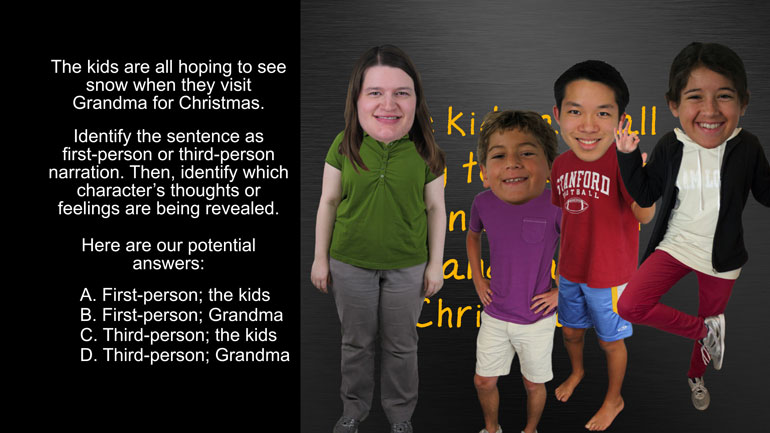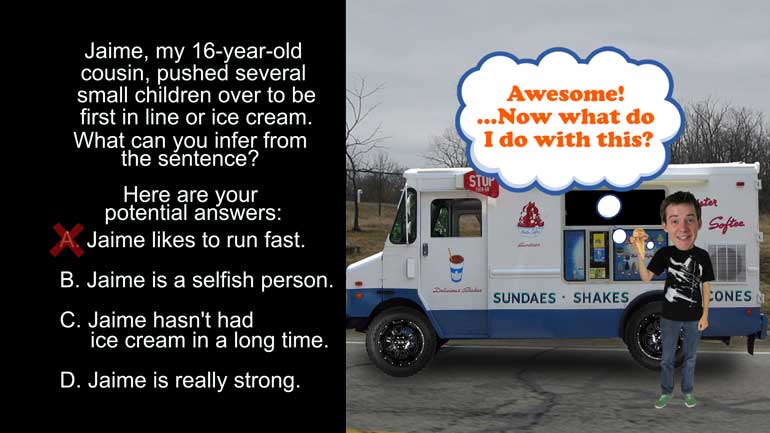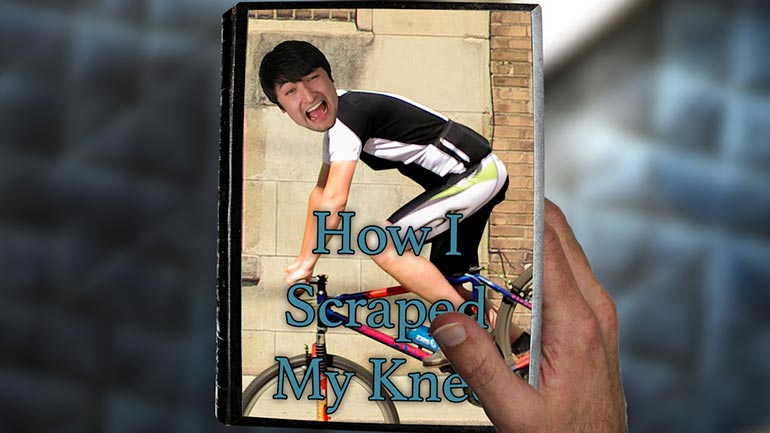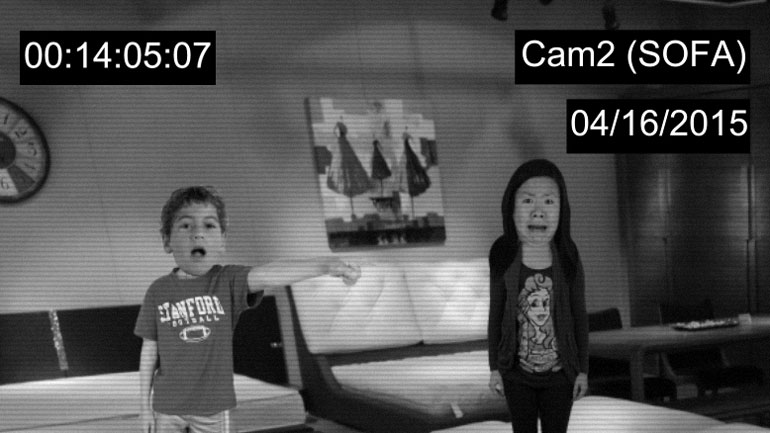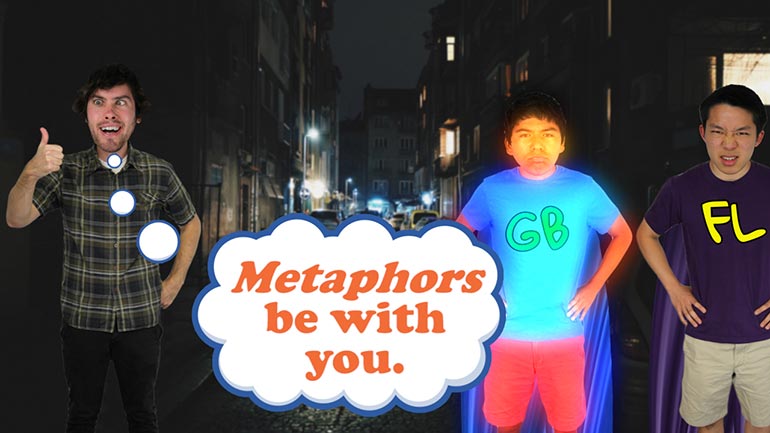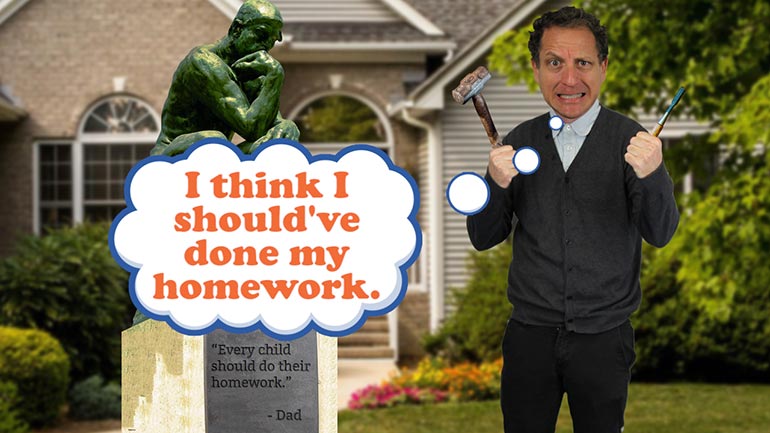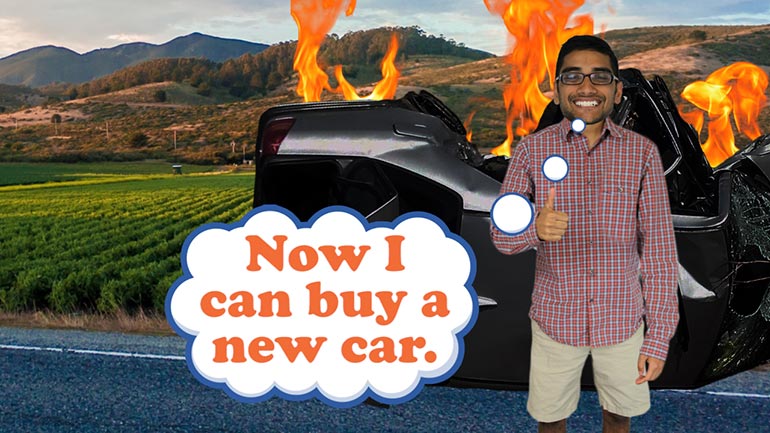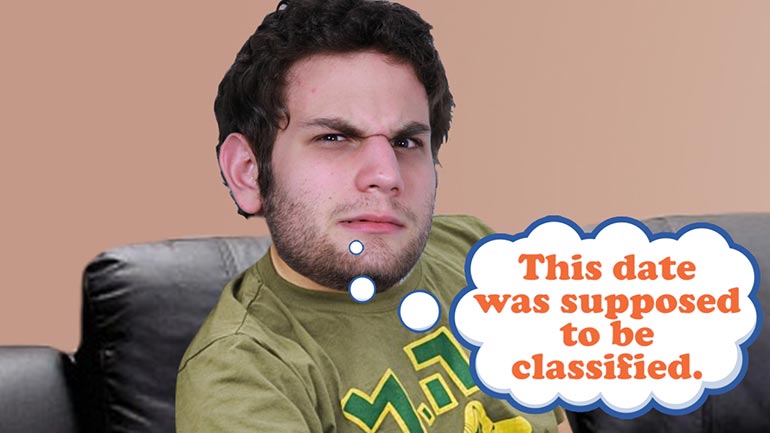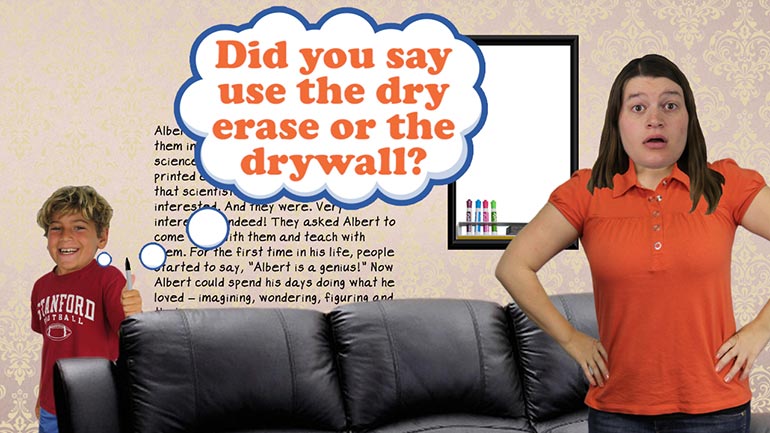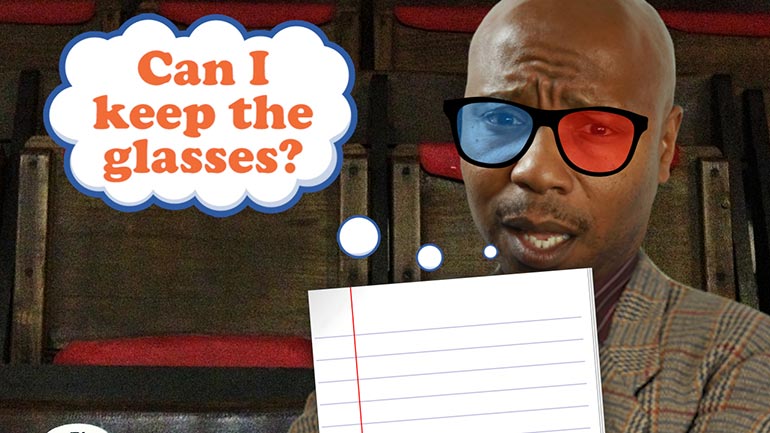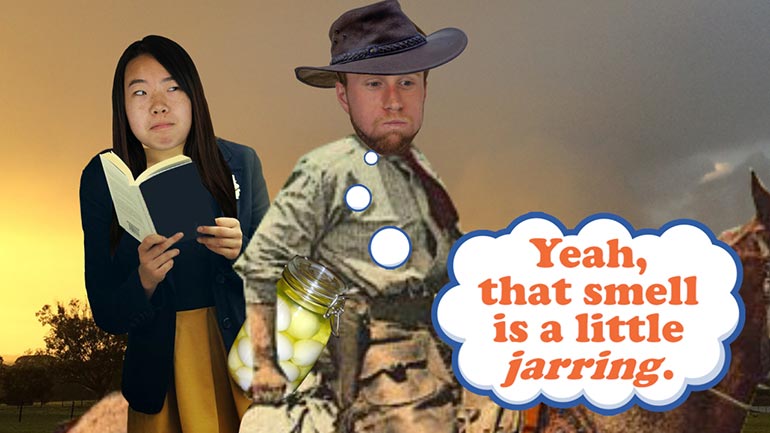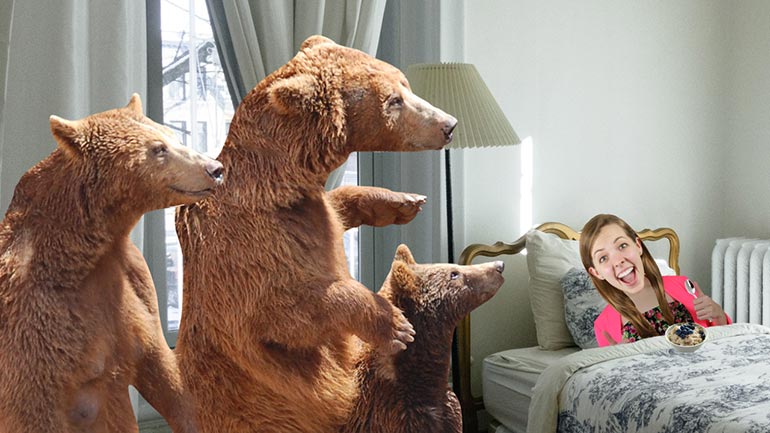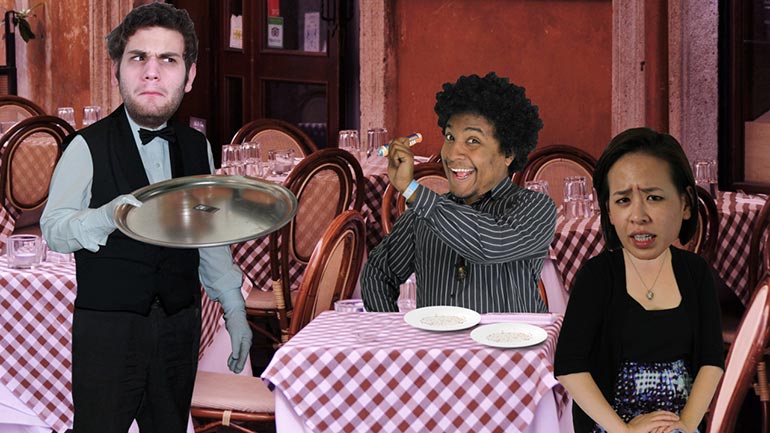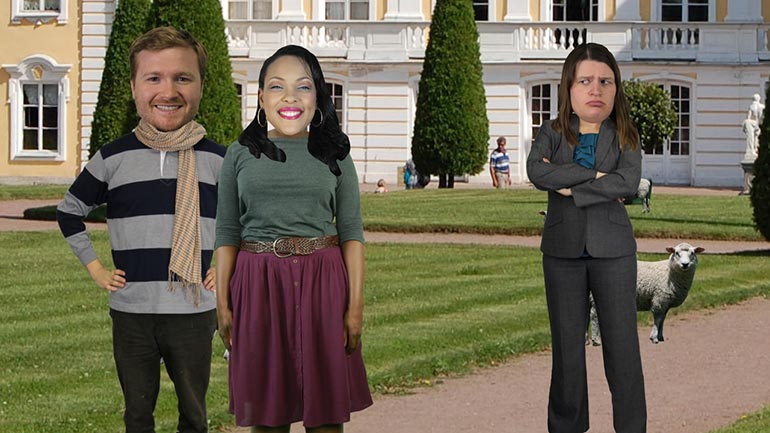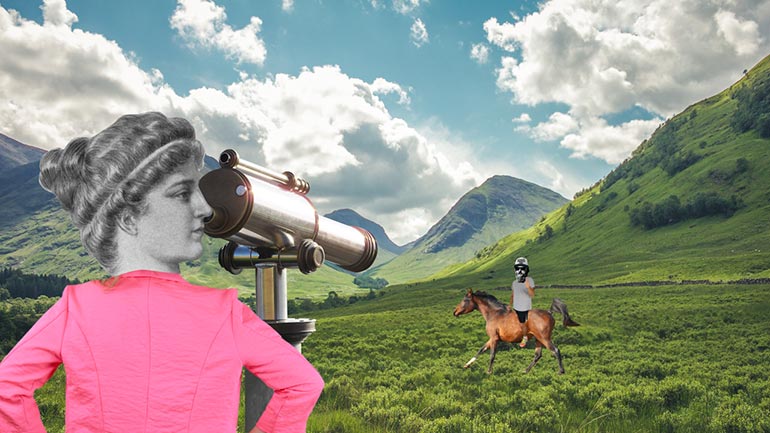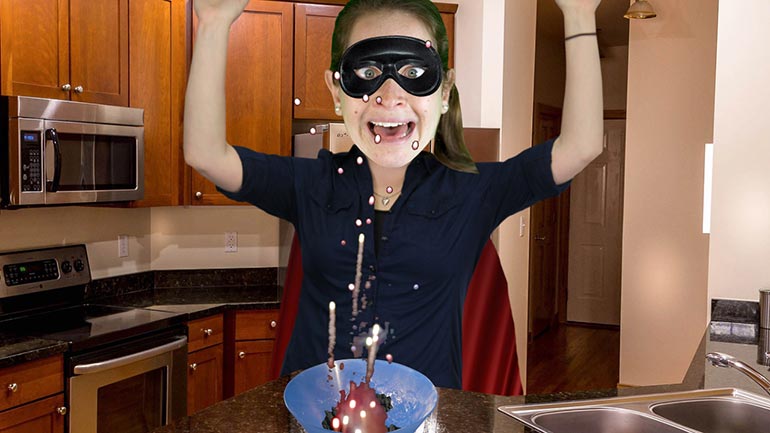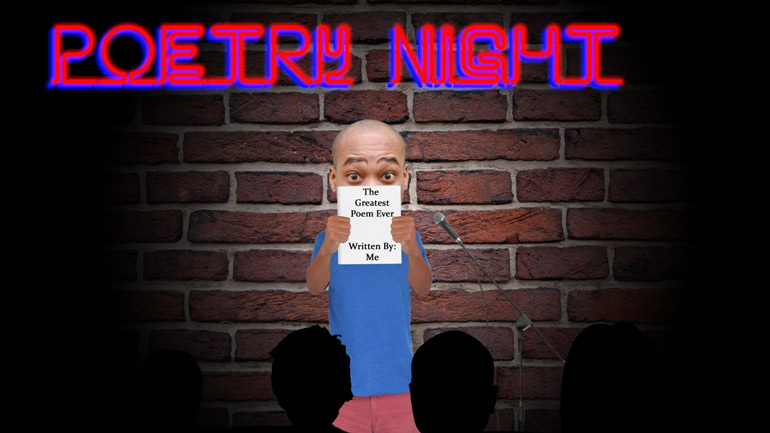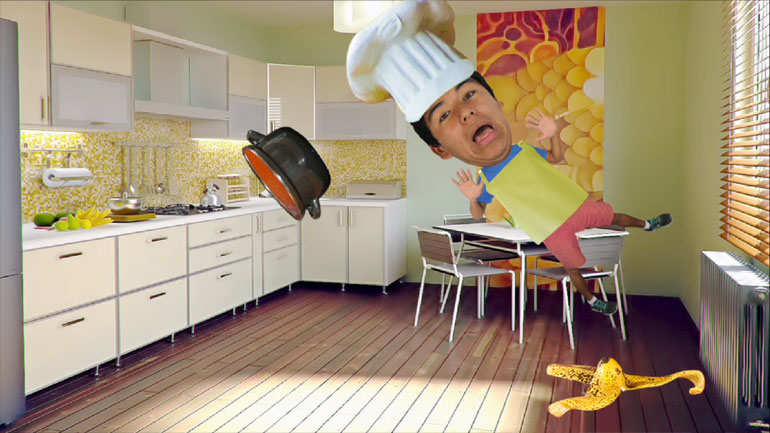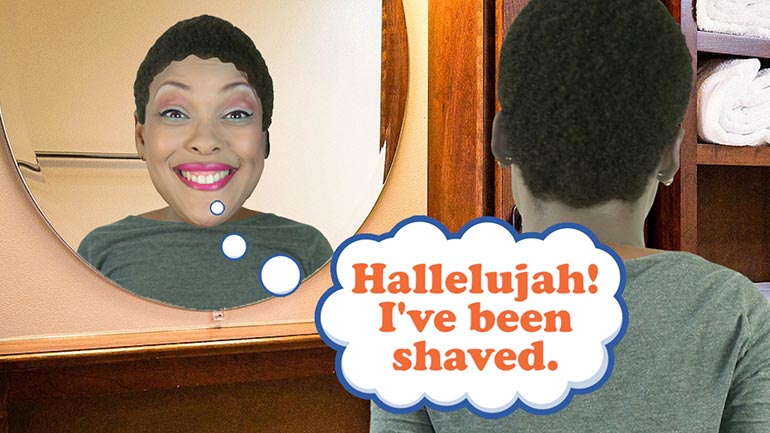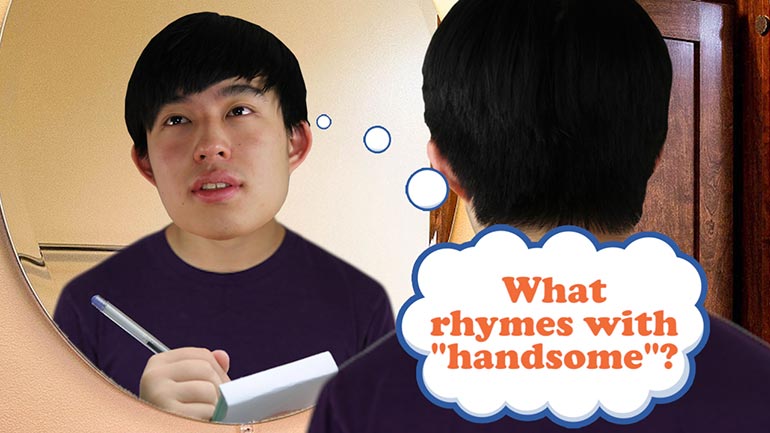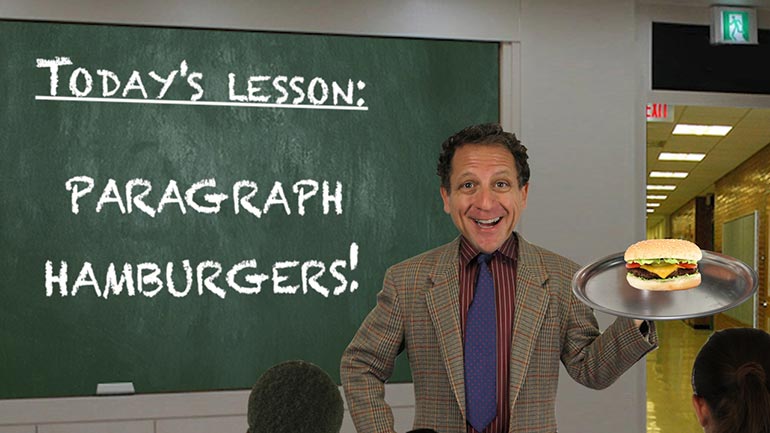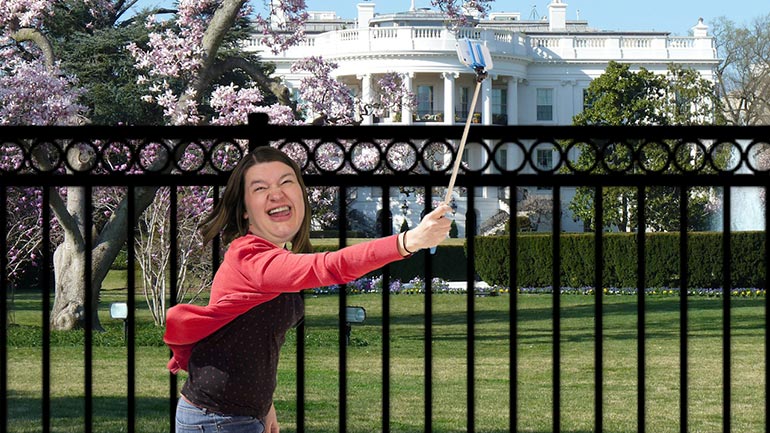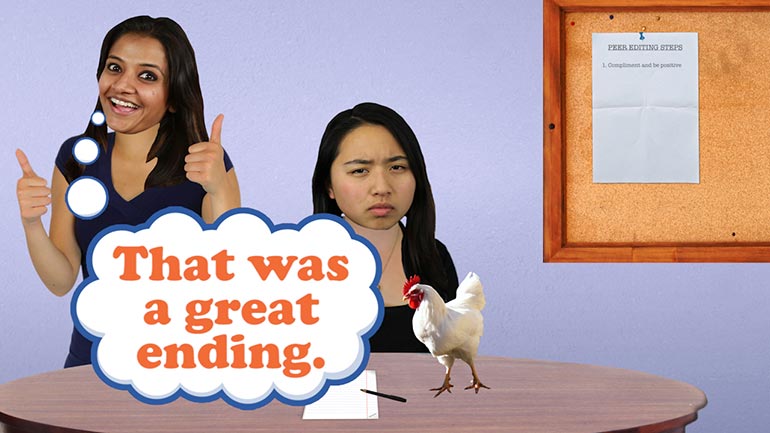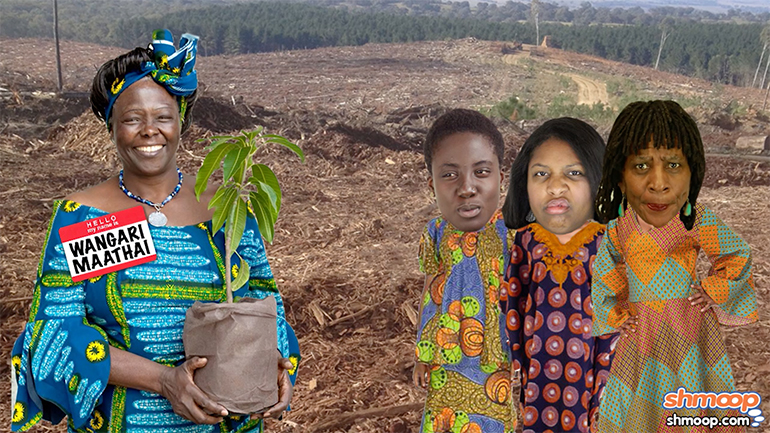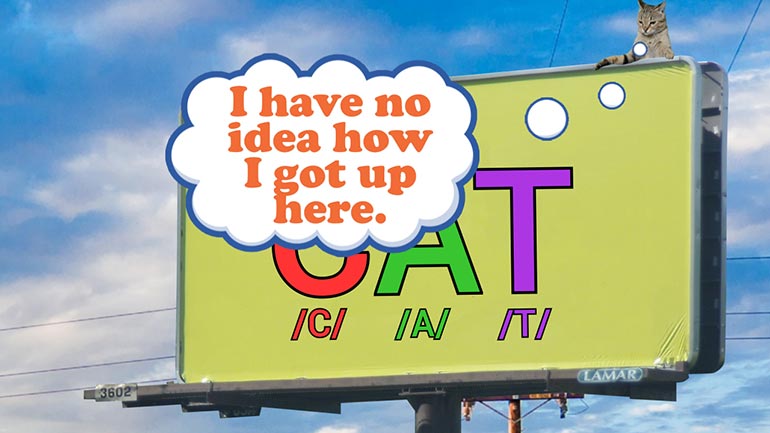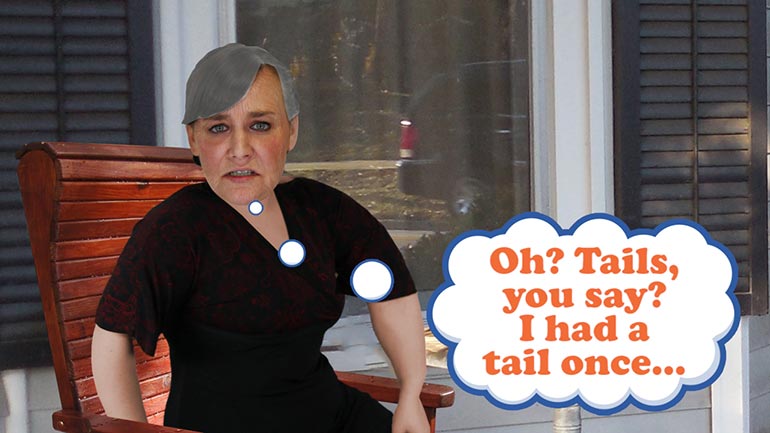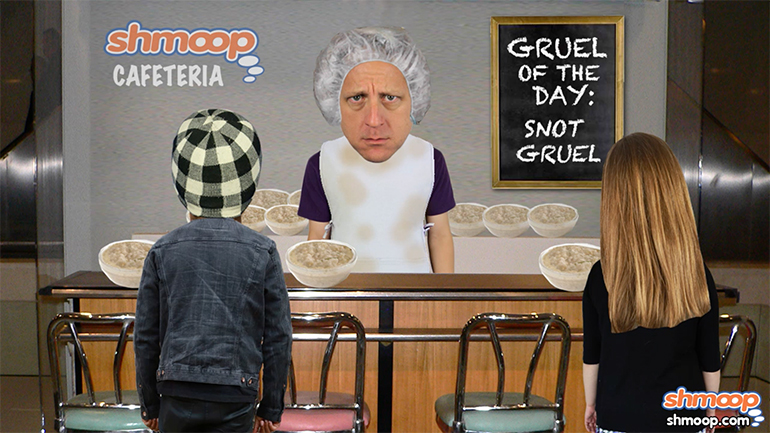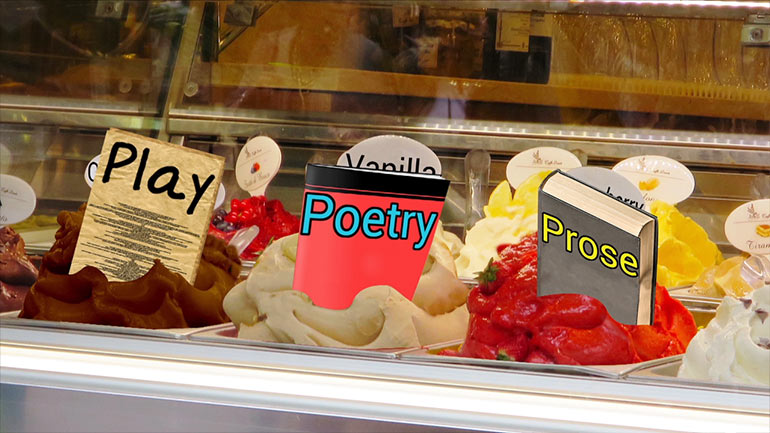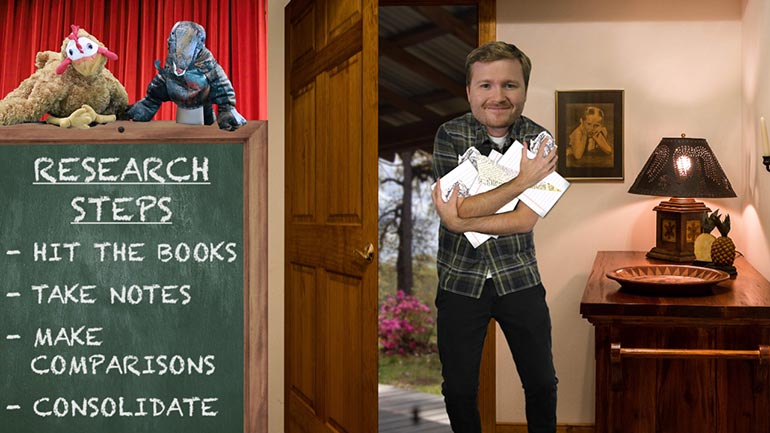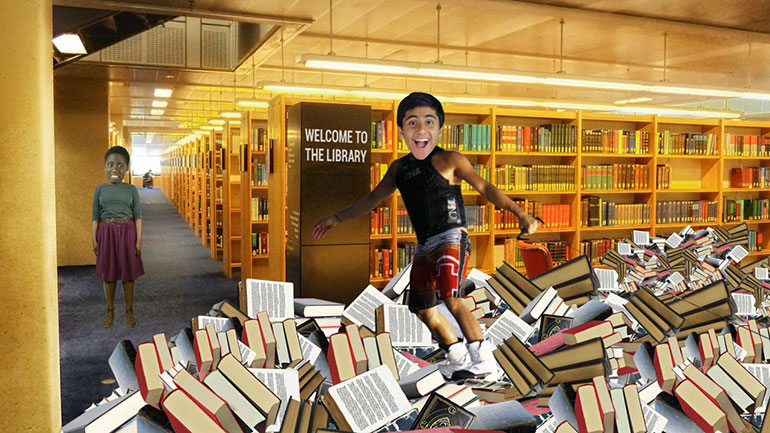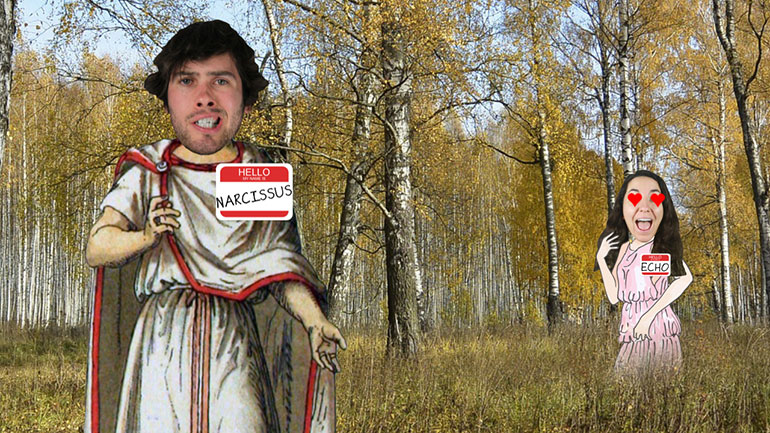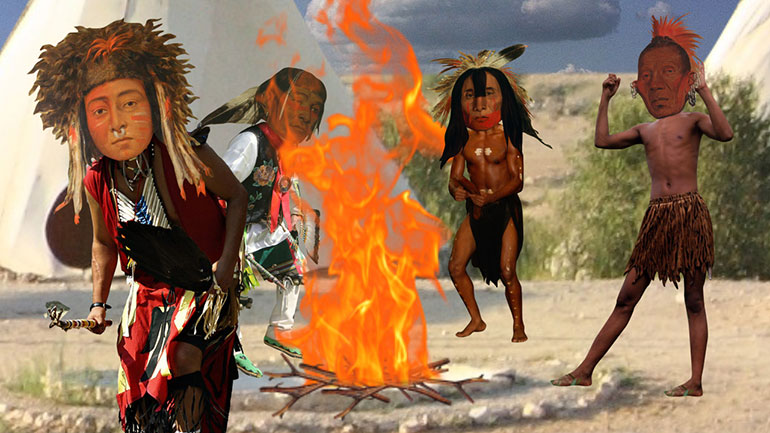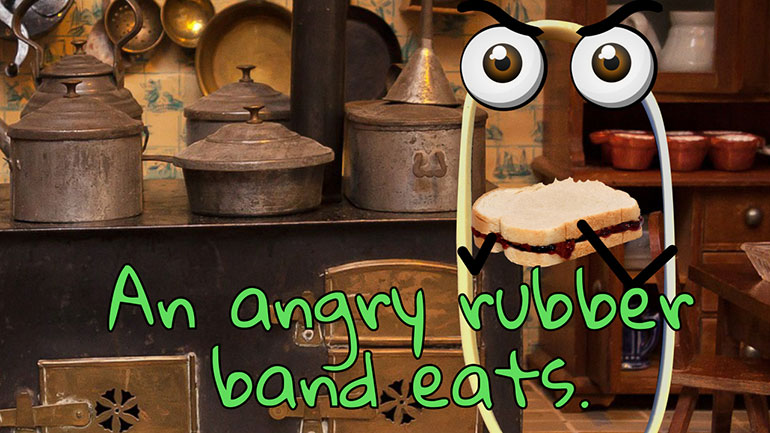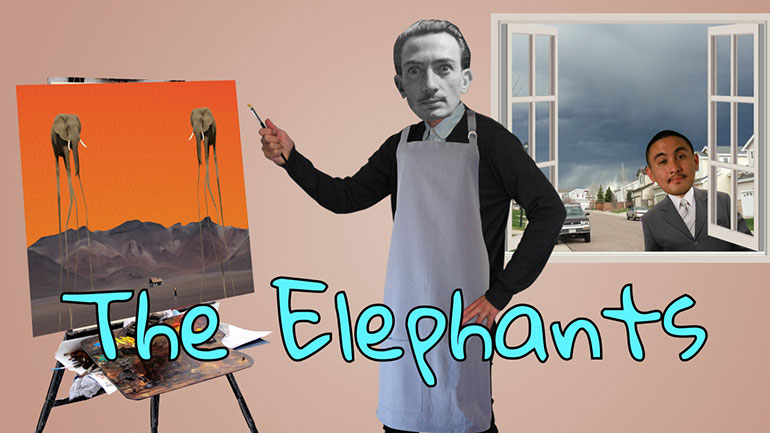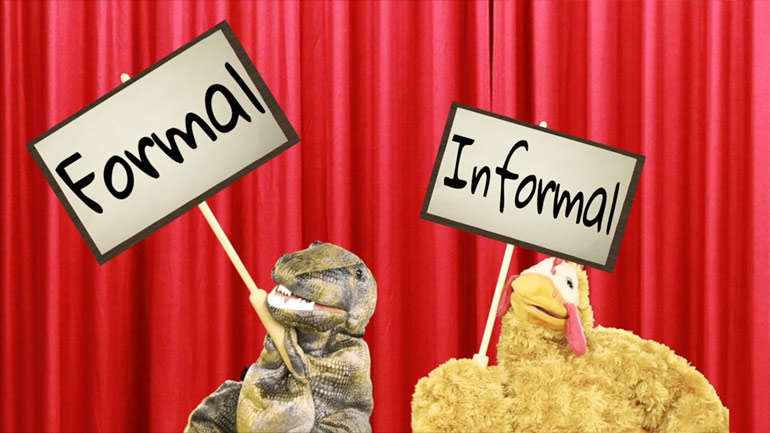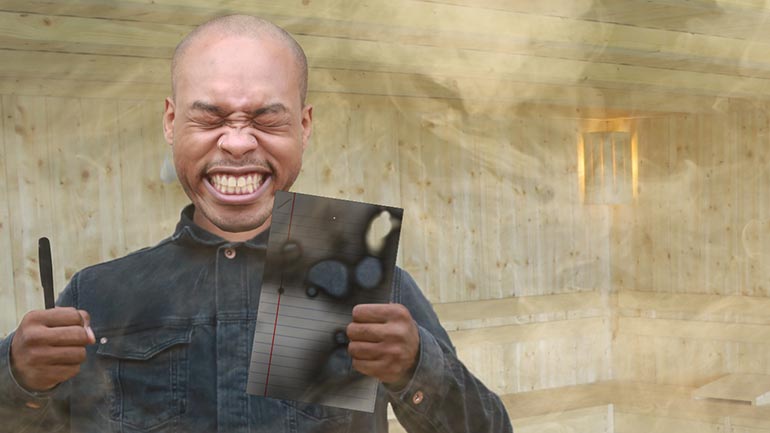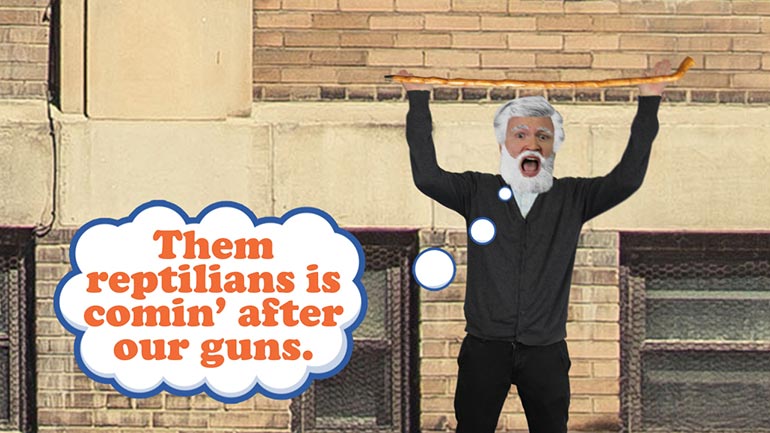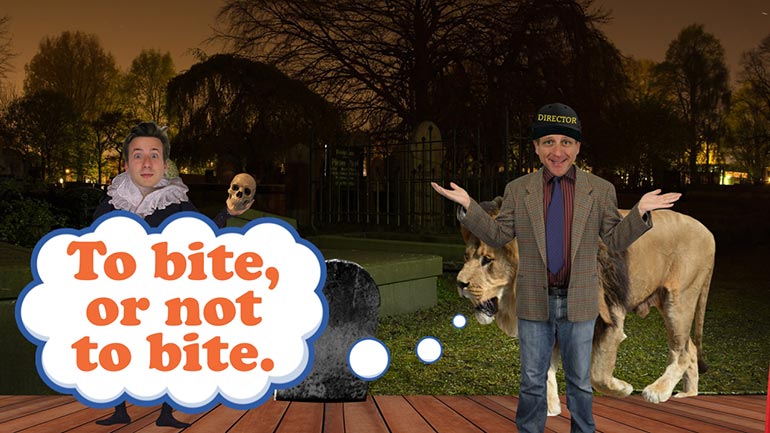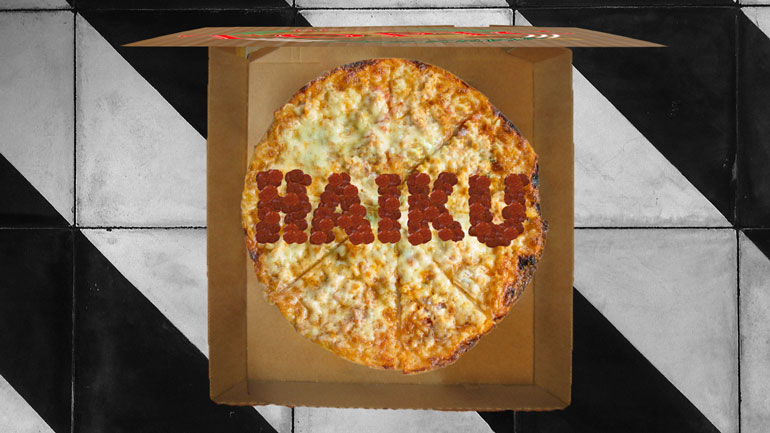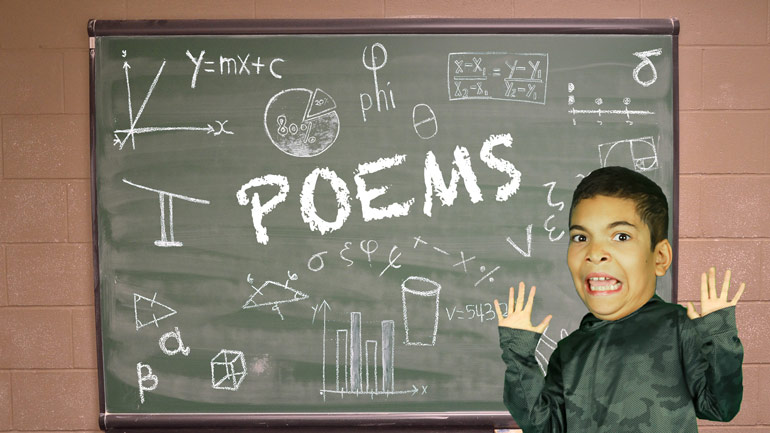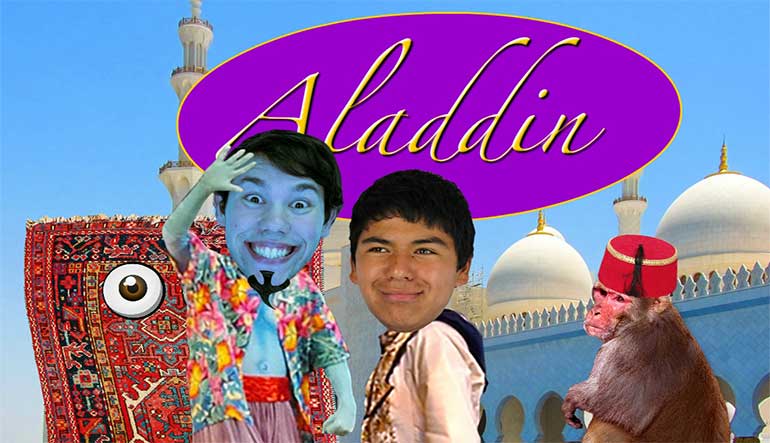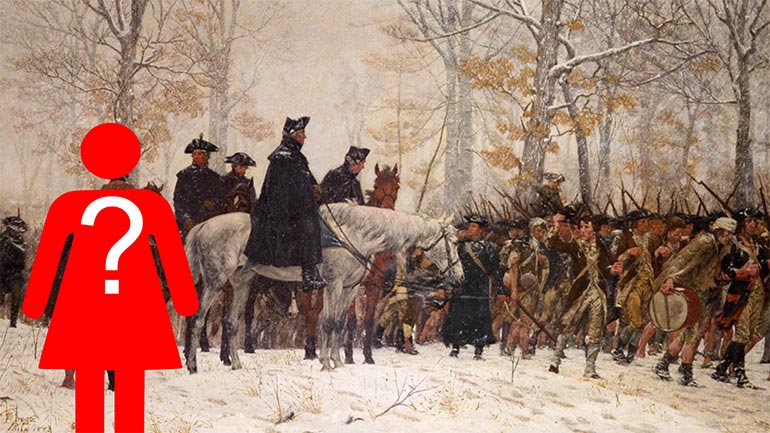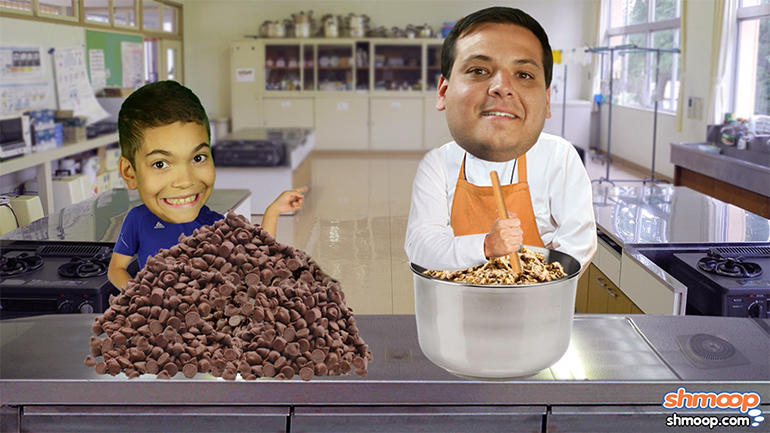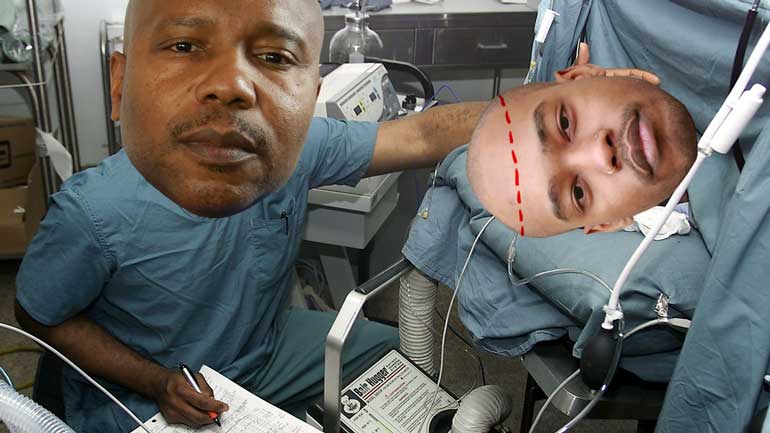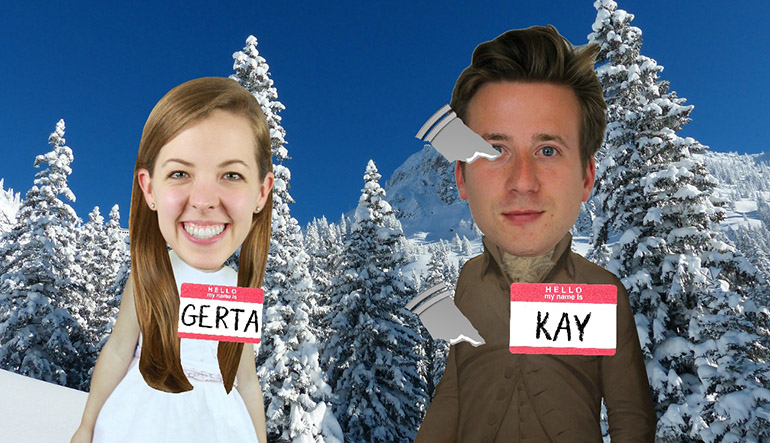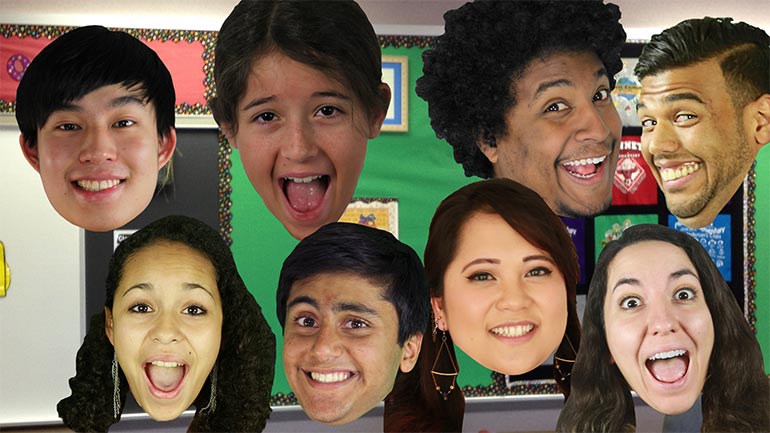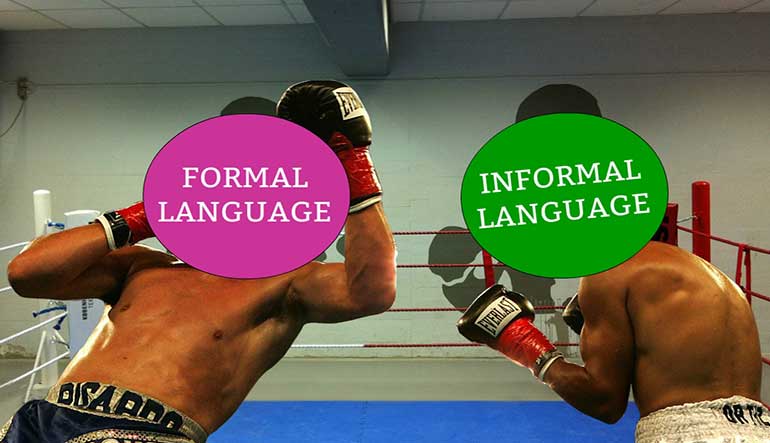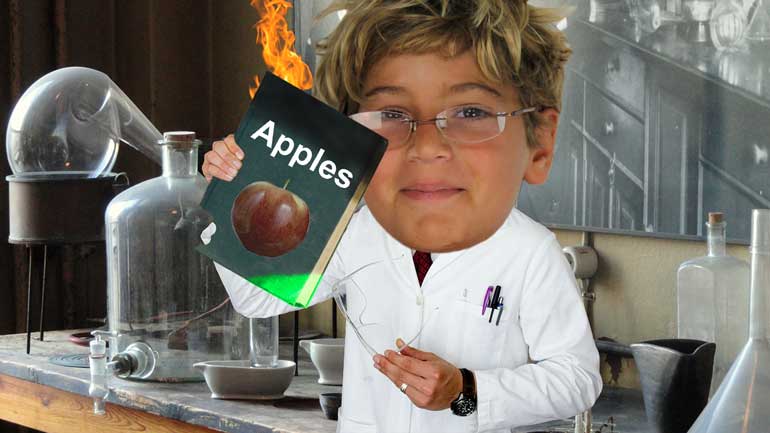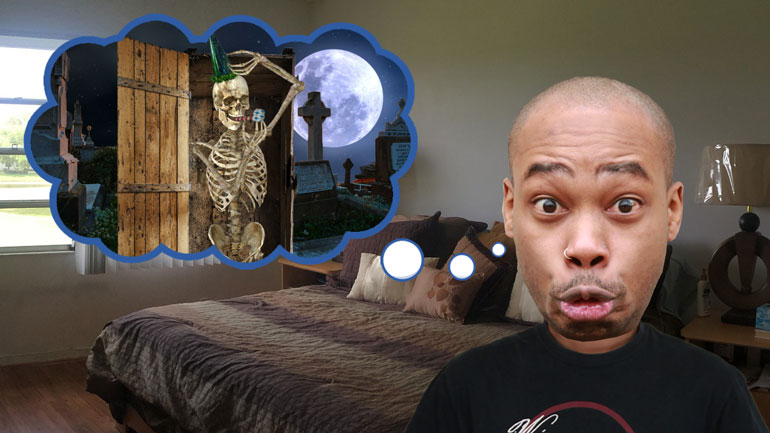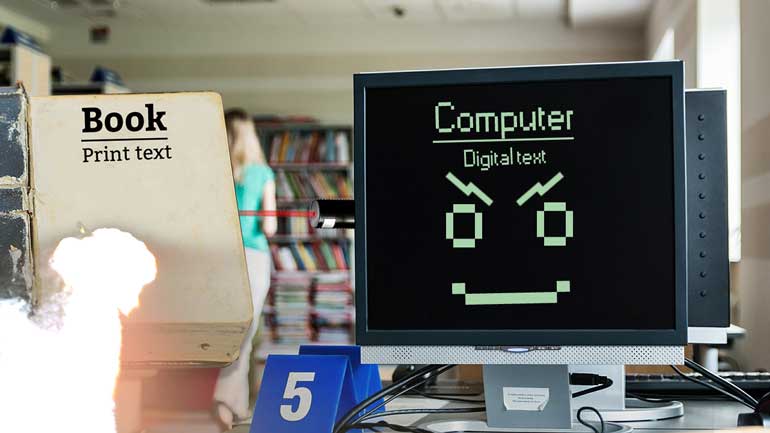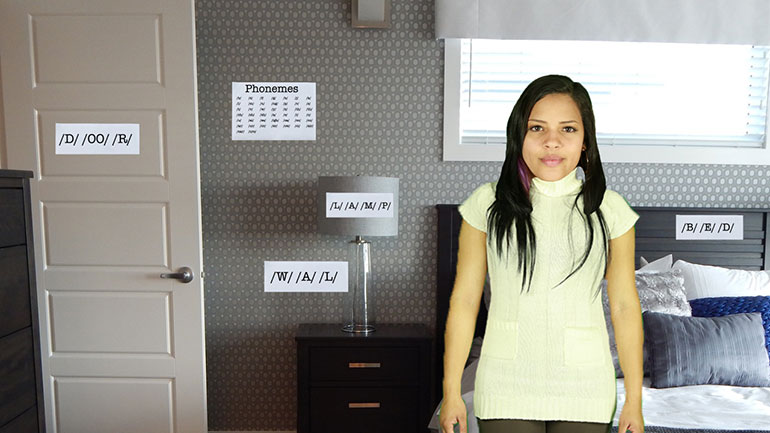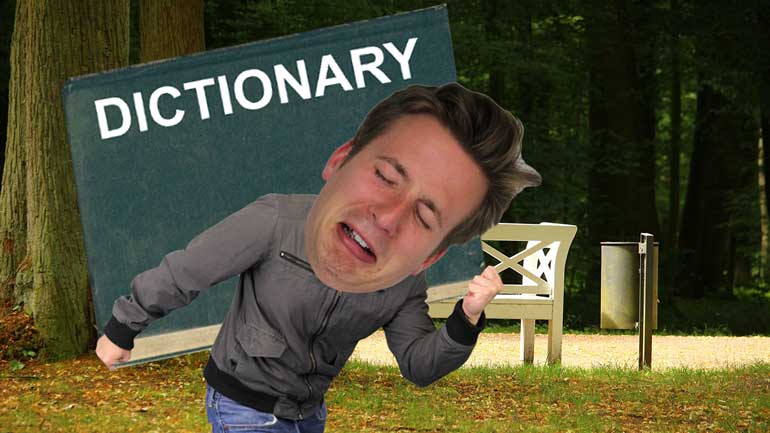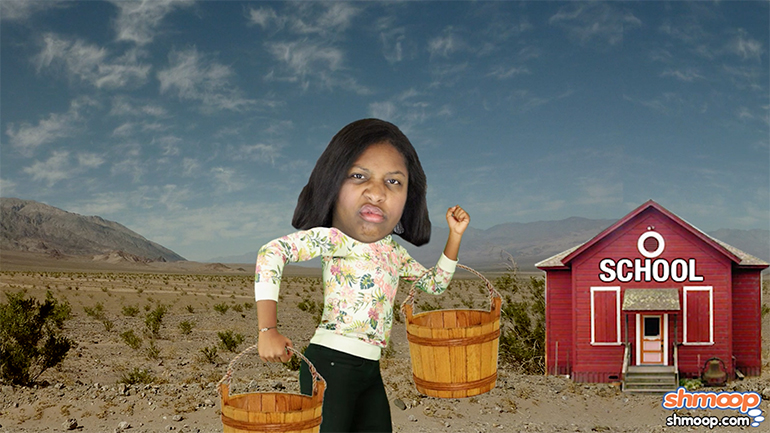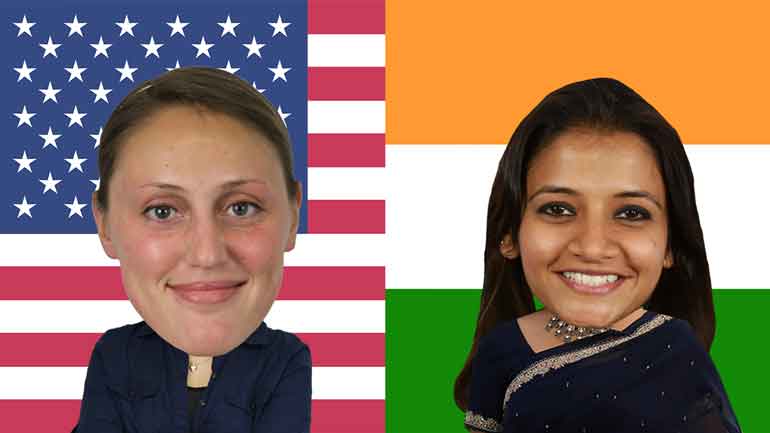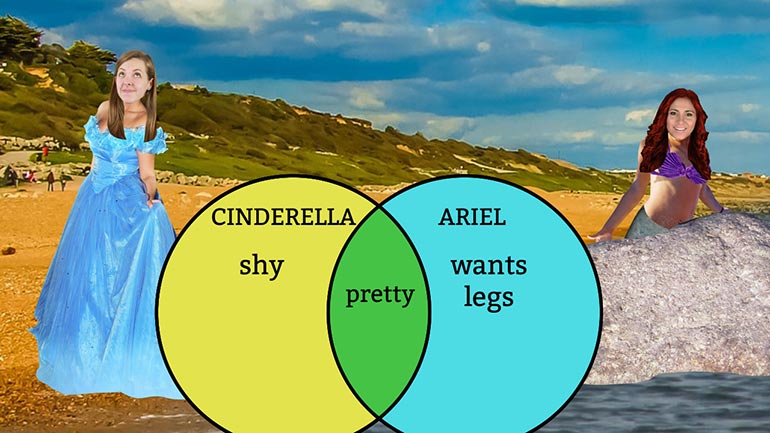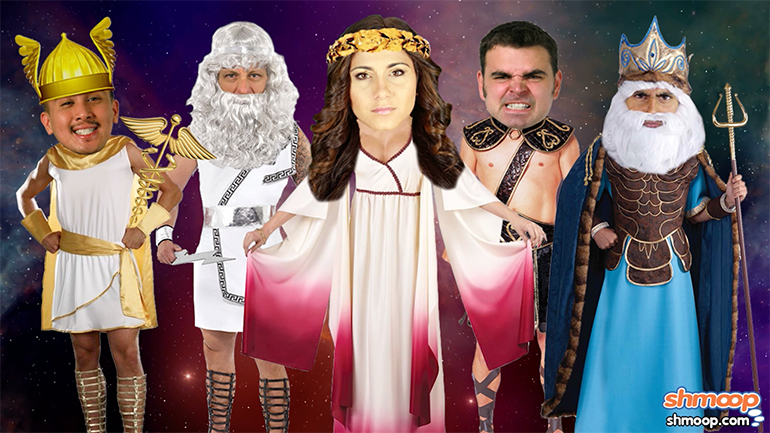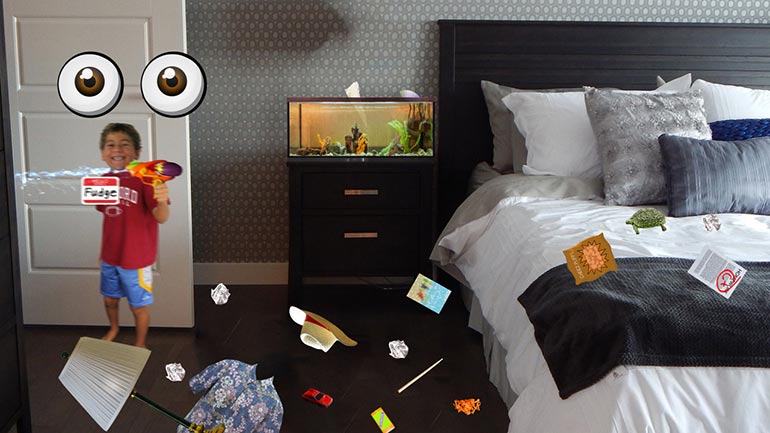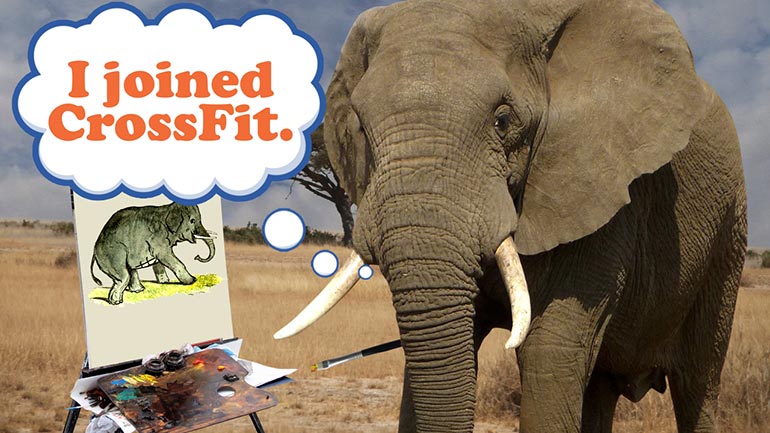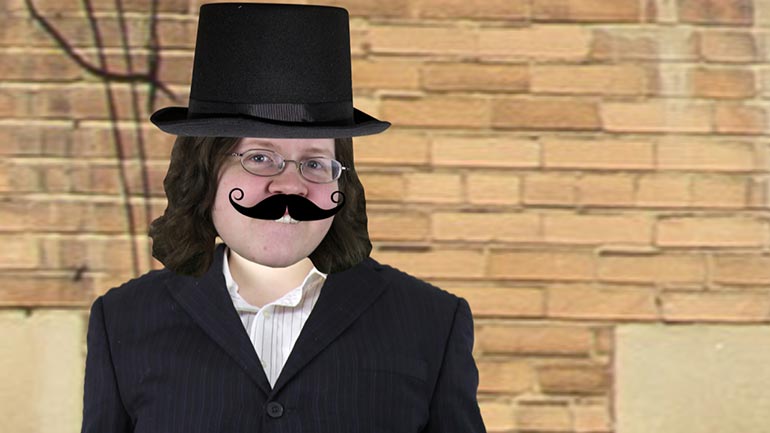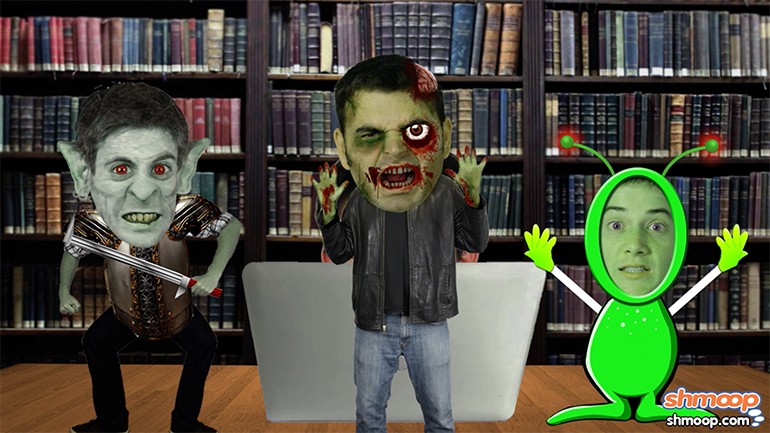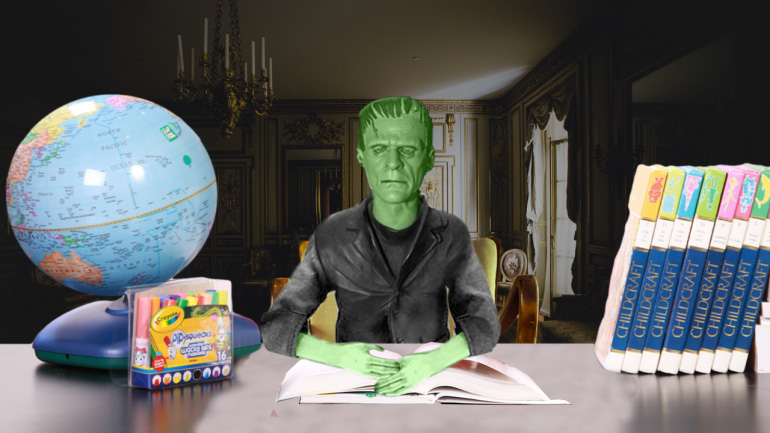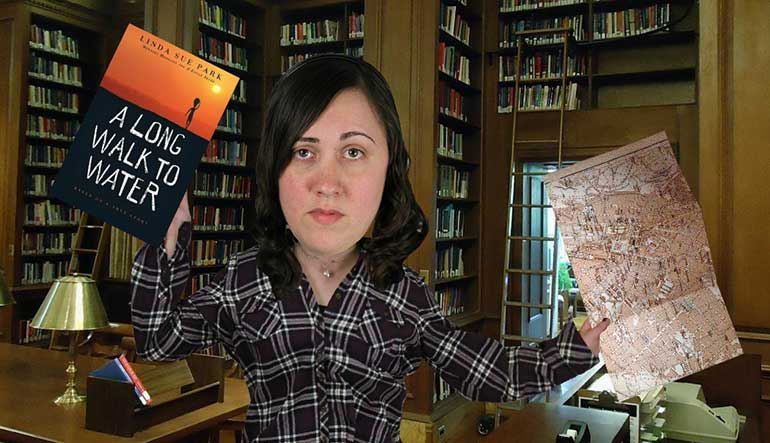ShmoopTube
Where Monty Python meets your 10th grade teacher.
Search Thousands of Shmoop Videos
Language Arts Videos 92 videos
In this lesson we'll subject you to some verbs and predicates. Each one is a necessary part of a complete breakfas—er...sentence.
Choosing words carefully is important. You may end up vexing the assemblage of citizens you're conversing with...or you might even just plain bore...
ELA 4: Peer Editing Descriptive Writing 51 Views
Share It!
Description:
Today we have an awesome video about an awesome subject: Awesomnes—wait no, descriptive writing. Hm. Maybe we should brush up on this subject as well.
Transcript
- 00:03
[Dino and Coop singing]
- 00:13
Take a look at this gorilla. [Gorilla eating]
- 00:15
Heh, also, bet you didn't think we'd start this video with that sentence.
- 00:19
Anyway, let's say you wanted to use descriptive writing to describe this gorilla to someone else.
- 00:23
You might say it's “strong” or “hairy” or “smelly.” [Words appearing around the gorilla]
Full Transcript
- 00:26
But what if the person you were describing the gorilla to had never seen a gorilla in [Flies around the gorilla]
- 00:31
their life before.
- 00:33
They don't have any idea what a gorilla is.
- 00:36
Even the word “gorilla” sounds crazy to them. [Guy holding a fork asking if it is a gorilla]
- 00:38
Which is fair.
- 00:39
If you say it a lot of times, it starts to sound weird.
- 00:42
Gorilla gorilla gorilla gorilla…. [Guy pulls a funny face and falls over]
- 00:44
Ahem.
- 00:45
So even if this person tried super hard to imagine a strong, hairy, smelly animal, chances
- 00:49
are pretty good that they won't come up with a gorilla.
- 00:52
…Huh.
- 00:53
That actually looks like our Uncle Sal… [Guy imagines a man with a white beard]
- 00:55
Anyway, that's because sometimes it's hard for us to know if our descriptive writing
- 00:59
is effective when we're so caught up in our own imaginations and not thinking about the [Woman describing her cat and the guy is imagining a vicious animal]
- 01:03
imaginations of others.
- 01:04
So how might we go about checking to see if our descriptive writing is actually effective? [Coop next to a blackboard]
- 01:08
By asking someone else, of course!
- 01:11
Peer editing – aka, when one of your friends or classmates provides feedback on your writing
- 01:15
- is a super important part of developing strong writing skills and your voice as a
- 01:19
writer.
- 01:20
Your fellow students can provide you with a fresh set of eyes and a unique perspective [Students faces appearing]
- 01:24
that can help point out areas in your writing where you might be able to use some stronger
- 01:27
words.
- 01:28
This could mean finding a better synonym for a word you might have used a few too many [Guys using a digger]
- 01:32
times, using a more specific adjective to describe your noun, or helping to structure
- 01:35
your sentences in an easy-to-understand way. [Guys in hard hats looking at building structures]
- 01:38
And this is really helpful because sometimes, when you read your own work over and over
- 01:42
again, you start to be blind to it. [Guy's work disappears off the page]
- 01:44
Maybe you love the word “awesome.”
- 01:46
It’s such a big and awesome part of your awesome vocabulary that you might not even
- 01:51
notice when you use that same awesome word three times in a single sentence. [Lego characters appear with the Lego movie song]
- 01:55
…Whoops.
- 01:56
But your peer might be able to point that out and suggest you try out a few more descriptive [Girl pushes the Lego characters away]
- 02:00
words.
- 02:01
So if you had the sentence “The awesome caterpillar turned into an awesome butterfly
- 02:05
and it was awesome," a peer might suggest, “The ambitious caterpillar turned into a [Girl brings a new sentence]
- 02:09
wildly beautiful butterfly and it was breathtaking.”
- 02:12
Much better!
- 02:13
So as you can see, peer editing is pretty…well…awesome! [Butterfly appears and says 'awesome']
- 02:17
It helps raise questions like, "what are some areas I can improve upon?" or, "what kind
- 02:21
of message am I trying to communicate, and how might I better communicate that message?"
- 02:25
And even, "how can I make better word choices in the future?" [Questions appearing on paper]
- 02:28
And who knows?
- 02:29
With the help of a good peer editor, that gorilla might stop looking like Uncle Sal
- 02:32
and end up looking like…
- 02:33
…..huh.
- 02:34
Now he looks kinda like Uncle Morty….weird…. [Uncle Sal disappears and a new man appears]
Related Videos
Sticks and stones, right? Well...only sometimes. It's a good idea to make sure your words aren't going to hurt others. Let's look at some ways to d...
Learn to debate like a champ. It's way better than debating like a chimp. That just takes mudslinging to a whole new level.
Today we'll learn about biographies and autobiographies. And no, the second one has nothing to do with the lives of cars.
In this lesson we'll subject you to some verbs and predicates. Each one is a necessary part of a complete breakfas—er...sentence.
Choosing words carefully is important. You may end up vexing the assemblage of citizens you're conversing with...or you might even just plain bore...

